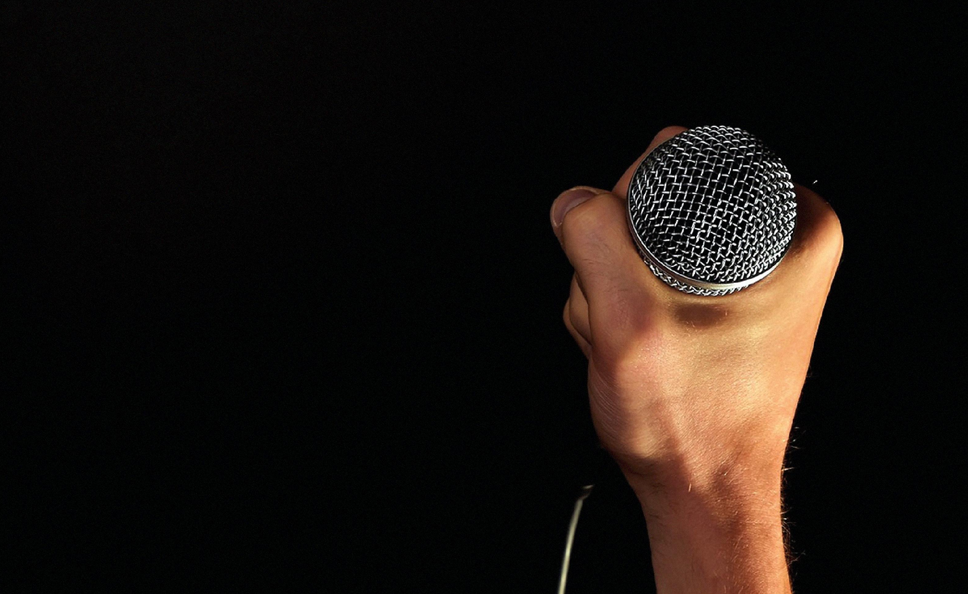
When It Comes To Public Speaking, Preparation Saves Perspiration
‘All speaking is public speaking, whether it’s to one person or a thousand.’ – Roger Love
As a long time public speaker and presenter to large groups of people all over the world, I often have people say how lucky I am that public speaking ‘comes so easily to me’.
Well, as the famous South African golfer Gary Player said, ‘The harder I practice, the luckier I get!’
So, even though advice on public speaking is commonplace, I thought I would share what I have learned about presenting powerfully. And I am not only talking about formal speeches.
Most of us have many platforms where getting a message across is important. A staff meeting, a client presentation, a farewell speech.
HERE ARE A FEW THINGS I LEARNED, AND I PRACTICE ’TIL THIS DAY:
- Prepare every word.
With so many years experience of public speaking, it’s true I can stand up and ‘wing’ a passably good speech. But mostly, I don’t! I prepare every word of a major presentation, typing the whole thing out. On the day itself, I may well ad lib big chunks. I go where my mind takes me, and to the audience, it may look as though a 60-minute presentation was done without a single note. But I have the security of knowing I can refer back to the full transcript. It is my ‘safety device’, and it’s a key psychological aid. - Plan your key points.
Your presentation needs structure. Work out what it is you really want to get across to your audience. It may only be two or three key points. Make those clear and communicate them hard and often. - Tell stories.
People love true stories. Anecdotes that support your key points. Make sure they are true, relevant and sometimes funny. I include them all the time, and years after the presentation, people remember the story. - Don’t tell pre-planned jokes.
Unless you are Jerry Seinfeld, don’t do it. It’s a rare skill to tell a joke well, and almost always they fall flat and are not quite appropriate anyway. Humour is good, but best off the cuff and always self-deprecating. - Rehearse like crazy.
I admit it. I rehearse my speeches, aloud and many times. I time them, so I know I won’t be rushing to meet the allotted time allowed for the presentation. In earlier days, my long-suffering wife would be asked to hear every speech before ‘D’ day. And her feedback was noted and changes made. I practice the punch-lines of pithy stories and I make sure the words flow. Maybe these days I don’t put as much into rehearsing as I did before, as I have 25 years experience of public speaking now… but I still rehearse every speech at least once.. all the way through. - Start strongly.
Write your opening lines carefully and rewrite then until you like them a lot. Make sure you start strong. It grabs people’s attention. It also gives you the confidence to know you have captured the audience early. I remember once starting a speech with a quote from the Business Review Weekly. It went something like “60% of people in this room today are currently failing in your current roles”. I then went on to elaborate and explain, but I had their attention early! - Even prepare for the ‘small ones’.
Giving a farewell speech? Announcing a new policy? Explaining the monthly team results? Prepare as if it’s a major speech. Work out your key points and prepare a strong opening. List who to thank or congratulate. All these small occasions build your brand, your leadership credentials and allow you to influence morale and opinion. - Use PowerPoint sparingly.
I use PowerPoint, but mostly as a teaser. Words are few and just give a taste of what I am going to elaborate on. If I use a graph or chart, it’s very sparse and just shows a trend or direction that I will explain orally. No detail. If you use a PowerPoint, make sure 90% of the audience time remains focused on you, 10% on the screen. - Warm up.
Seriously, before every speech, I “warm up”. Just as a footballer warms up the muscles about to be used in battle, so must a speaker. I find a quiet place (hotel room or at home before I leave) and practice tongue twisters. Say these fast and repeatedly, ‘Red lorry, yellow lorry, green lorry’. Then try “She sells sea shells on the sea shore”. Over and over, until you can get them word perfect at speed. Guess what? When you hit the podium there is no stumbling over words and your brain and tongue are in synch! - End strongly.
Sum up your main points and end with a phrase or thought that people take away with them. It takes planning, but it’s important to leave them with a key message. - Prepare the logistics.
I take a copy of my speech in my briefcase and another in my suitcase if it’s an interstate trip. I have the powerpoint on my laptop and on a memory stick. I bring both to the venue. If my laptop does not work for some reason (it’s happened!) I can use my memory stick it on someone else’s. I make sure I know the location of the presentation and I plan the trip there, so I know I will be on time. The last thing you want is to be flustered because you lost your notes, your power point is on the fritz or you arrive 10 minutes late.
They say public speaking is the number two fear human beings have, after death! It does not have to be so. A little hard preparation before your speech will save tons of perspiration during it.
